Discover the top 10 food processing companies in India, leading the industry with innovative products and state-of-the-art manufacturing processes. Explore how these companies are transforming the food sector with quality, efficiency, and sustainability.
Table of Contents
1 Nestlé India :
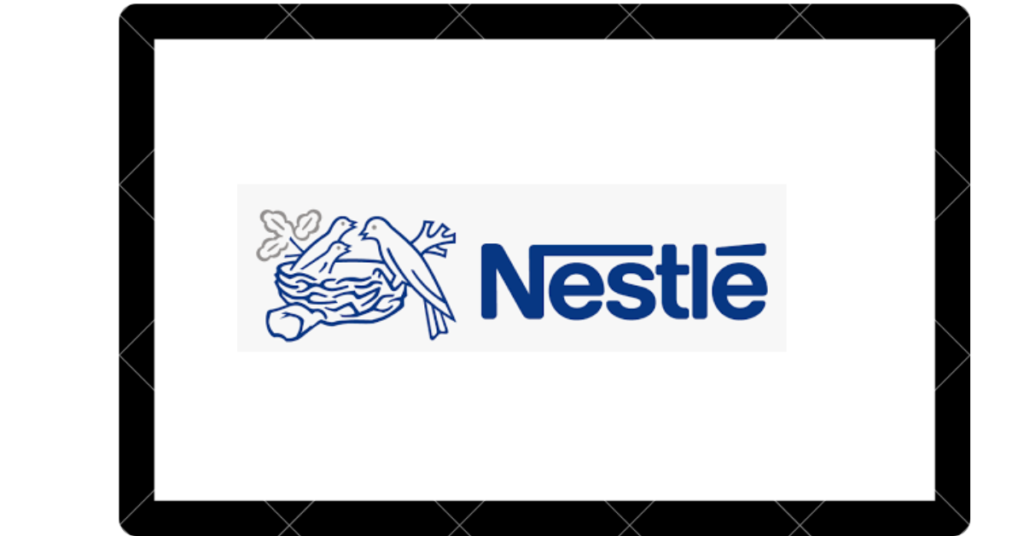
Nestlé India is a prominent subsidiary of the Swiss multinational Nestlé S.A., established in 1866 and operating in over 180 countries worldwide. In India, Nestlé has carved a significant niche in the food and beverage sector, offering a wide range of products known for their quality, taste, and nutritional value. The company’s product portfolio includes globally recognized brands such as Maggi noodles, Nescafé coffee, KitKat chocolates, Cerelac infant cereals, and many others.
Key Highlights:
- Product Range: Nestlé India’s diverse product range spans categories like instant noodles, beverages, chocolates, dairy products, infant nutrition, and culinary products.
- Market Presence: With a strong foothold in the Indian market, Nestlé India operates multiple manufacturing facilities across the country and has built a robust distribution network to reach urban as well as rural consumers.
- Innovation: Nestlé India emphasizes continuous innovation in its product offerings, adapting to local tastes and preferences while maintaining global standards of quality and safety.
- Corporate Social Responsibility: The company is committed to sustainable practices, community development, and environmental conservation through initiatives focused on water stewardship, rural development, and nutrition education.
- Quality Assurance: Nestlé India places a strong emphasis on quality assurance and food safety, adhering to stringent manufacturing processes and quality control measures to ensure consumer trust and satisfaction.
- Employment and Contribution: Beyond business operations, Nestlé India contributes significantly to employment generation, agricultural development through sourcing initiatives, and skill development programs in rural areas.
Nestlé India continues to be a key player in the Indian food and beverage industry, combining global expertise with a deep understanding of local markets to meet the evolving needs of consumers across the country.
| Aspect | Details |
|---|---|
| Parent Company | Nestlé S.A., a Swiss multinational founded in 1866, operating in over 180 countries globally. |
| Established | Nestlé India established its presence in India in 1959. |
| Headquarters | Gurgaon, Haryana, India. |
| Key Products | Maggi noodles, Nescafé coffee, KitKat chocolates, Cerelac infant cereals, Nestea iced tea, Milkybar chocolates, Munch chocolates, and more. |
| Product Range | Instant noodles, beverages, chocolates, dairy products, infant nutrition, culinary products. |
| Manufacturing Facilities | Multiple manufacturing facilities across India. |
| Distribution Network | Extensive distribution network covering urban and rural areas. |
| Innovation | Continuous innovation to adapt products to local tastes and preferences. |
| Corporate Social Responsibility | Focus on water stewardship, rural development, and nutrition education. |
| Quality Assurance | Stringent quality control measures and adherence to global standards. |
| Sustainability Efforts | Commitment to sustainable practices and environmental conservation. |
| Community Impact | Employment generation, agricultural development, and skill development programs in rural areas. |
This table provides a snapshot of Nestlé India’s operations, products, and corporate initiatives in the Indian market.
also read :Top 10 E-commerce Startups in india
2 Britannia Industries :
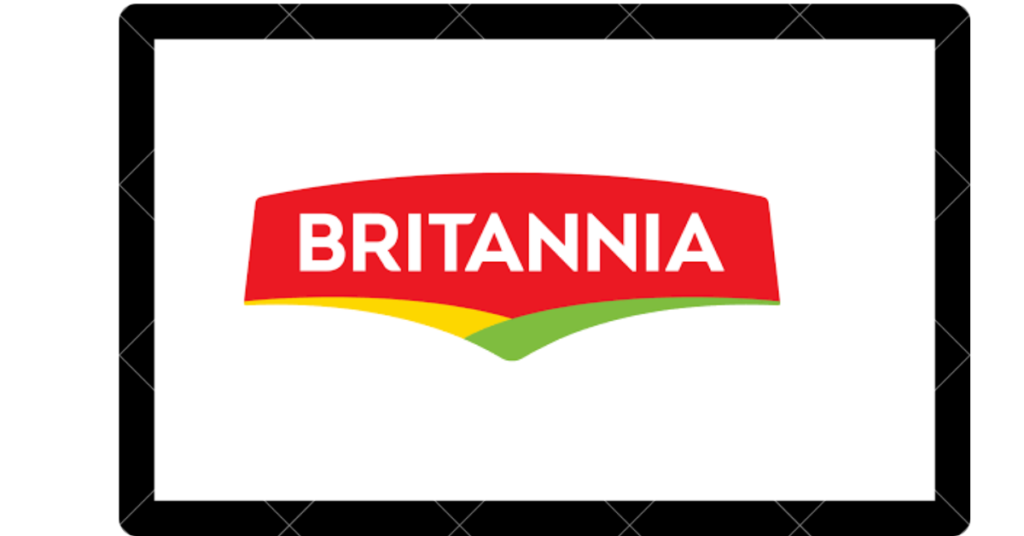
Britannia Industries is one of India’s oldest and most renowned food companies, known for its extensive range of bakery and dairy products. Established in 1892, Britannia has grown to become a household name synonymous with quality and taste across the country.
Key Highlights:
- Product Range: Britannia Industries offers a diverse portfolio of products including biscuits, breads, cakes, rusks, dairy products, and health snacks. Some of its popular brands include Good Day, Tiger, MarieGold, NutriChoice, and Milk Bikis.
- Market Presence: With a presence in over 60 countries, Britannia Industries has a strong foothold in the Indian market. It operates several manufacturing units strategically located across India to cater to regional demands.
- Innovation: Britannia emphasizes innovation in product development to cater to evolving consumer preferences. It has introduced healthier variants, fortified products, and premium offerings to meet diverse consumer needs.
- Quality Assurance: The company adheres to stringent quality control measures and food safety standards across its manufacturing processes. This ensures consistent quality and safety in its products.
- Corporate Social Responsibility: Britannia is committed to sustainable practices, community development, and environmental conservation. It engages in various initiatives focusing on education, nutrition, and skill development in rural areas.
- Technology and Manufacturing: Britannia leverages advanced technology and efficient manufacturing practices to maintain its competitive edge in the market. It continuously invests in upgrading its production facilities to enhance productivity and quality.
- Consumer Trust: Over the years, Britannia has earned consumer trust through its commitment to delivering affordable, nutritious, and high-quality products. It remains a preferred choice among consumers across all age groups.
Britannia Industries continues to innovate and expand its product offerings while upholding its core values of quality, trust, and customer satisfaction.
| Aspect | Details |
|---|---|
| Founded | 1892 |
| Headquarters | Bangalore, Karnataka, India |
| Key Products | Biscuits (Good Day, Tiger, MarieGold, NutriChoice), Bread, Cakes, Dairy Products (Cheese, Milk, Butter), Rusks, Health Snacks |
| Market Presence | Presence in over 60 countries; strong foothold in the Indian market |
| Manufacturing Units | Multiple manufacturing units across India |
| Innovation | Focus on product innovation to cater to changing consumer preferences and health trends |
| Quality Assurance | Adheres to stringent quality control measures and food safety standards |
| Corporate Social Responsibility | Initiatives in education, nutrition, and skill development; commitment to sustainability and community welfare |
| Technology and Manufacturing | Utilizes advanced technology in manufacturing to enhance efficiency and quality |
| Consumer Trust | Strong consumer trust built over decades through consistent quality and diverse product range |
This table provides a concise overview of Britannia Industries, highlighting its history, product range, market presence, corporate initiatives, and manufacturing capabilities.
also read :Top 10 indiaAI Startups in india
3 ITC Limited :
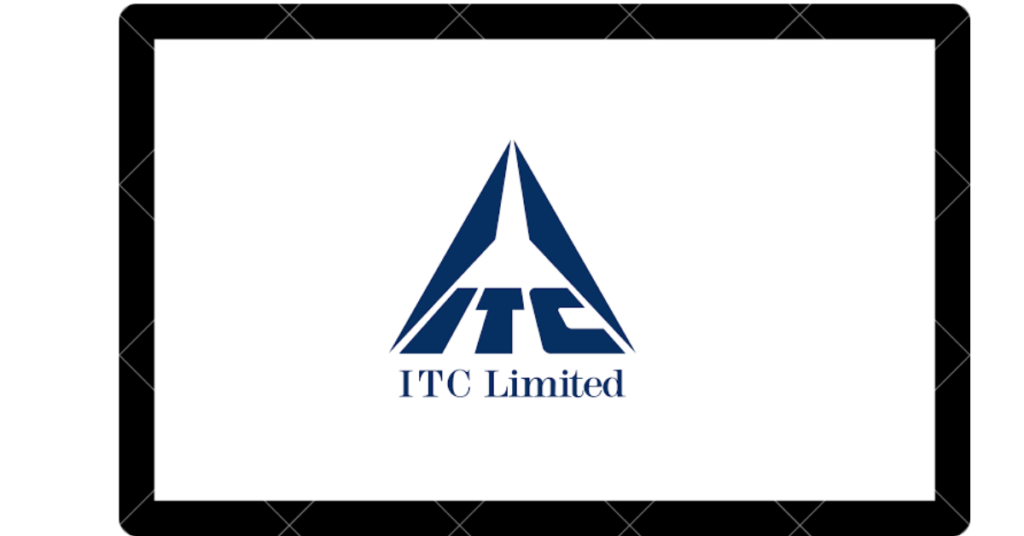
ITC Limited is a diversified conglomerate headquartered in Kolkata, India, with a significant presence in various sectors including FMCG (Fast Moving Consumer Goods), hotels, paperboards and packaging, agribusiness, and information technology.
Key Highlights:
- Diversified Business Segments: ITC operates through multiple business segments, including FMCG (branded packaged foods, personal care products, education and stationery products, agarbattis), hotels, paperboards and specialty papers, packaging, agri-business (agricultural commodities, e-choupal initiative), and information technology.
- FMCG Brands: Some of its well-known FMCG brands include Aashirvaad, Sunfeast, Bingo!, YiPPee!, Classmate, Fiama, Vivel, Engage, and Savlon among others.
- Market Presence: ITC has a strong presence in India and international markets. It has manufacturing facilities spread across the country to support its diverse product range.
- Sustainability: ITC has been at the forefront of sustainable business practices and is recognized for its environmental stewardship, social responsibility initiatives, and sustainable agriculture programs like the e-Choupal.
- Corporate Social Responsibility: ITC has initiatives in education, health, water management, and rural development through its integrated rural development program (IRDP) and other community development programs.
- Quality and Innovation: ITC emphasizes quality across its products and services, focusing on innovation to meet consumer preferences and market trends.
- Technology and Manufacturing: The company leverages advanced technology and efficient manufacturing practices across its diverse operations to maintain quality and operational efficiency.
- Financial Performance: ITC has consistently demonstrated strong financial performance and is one of India’s largest companies by market capitalization.
ITC Limited continues to expand its footprint in various sectors while maintaining a strong commitment to sustainable development and creating value for its stakeholders.
| Aspect | Details |
|---|---|
| Founded | 1910 |
| Headquarters | Kolkata, West Bengal, India |
| Business Segments | FMCG (Branded Packaged Foods, Personal Care, Education & Stationery Products, Agarbattis), Hotels, Paperboards & Specialty Papers, Packaging, Agri-Business, Information Technology |
| Key FMCG Brands | Aashirvaad, Sunfeast, Bingo!, YiPPee!, Classmate, Fiama, Vivel, Engage, Savlon, among others |
| Market Presence | Strong presence in India and international markets |
| Manufacturing Facilities | Multiple manufacturing facilities across India |
| Sustainability Initiatives | Environmental stewardship, sustainable agriculture (e-Choupal), social responsibility initiatives |
| Corporate Social Responsibility | Education, health, water management, rural development through integrated rural development programs (IRDP) |
| Quality and Innovation | Emphasis on quality across products and services; focus on innovation to meet consumer preferences |
| Technology and Manufacturing | Advanced technology and efficient manufacturing practices |
| Financial Performance | Strong financial performance; one of India’s largest companies by market capitalization |
This table provides a concise overview of ITC Limited, highlighting its founding, headquarters, business segments, key brands, market presence, sustainability efforts, corporate social responsibility, innovation, technology, manufacturing capabilities, and financial performance.
also read :Top 10 Blockchain Startups in india
4 Hindustan Unilever Limited (HUL) :
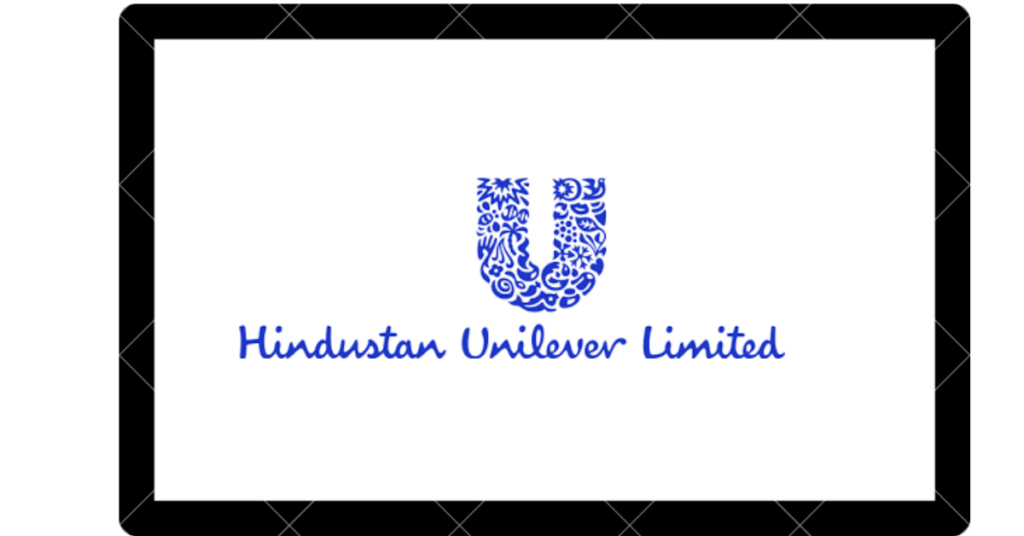
Hindustan Unilever Limited (HUL) is India’s largest fast-moving consumer goods (FMCG) company and a subsidiary of the British-Dutch multinational Unilever. Established in 1933, HUL has grown to become a market leader in various consumer product categories, offering a wide range of products that cater to the everyday needs of consumers across India.
Key Highlights:
- Product Range: HUL’s diverse product portfolio includes categories such as home care (detergents, cleaning products), personal care (soaps, shampoos, skincare products), foods and beverages (tea, coffee, packaged foods), and water purifiers.
- Market Presence: With a robust distribution network and extensive reach, HUL products are available in millions of households across urban and rural India. The company operates multiple manufacturing facilities to cater to diverse regional markets.
- Brand Portfolio: HUL owns iconic brands such as Dove, Lux, Lifebuoy, Pepsodent, Surf Excel, Rin, Brooke Bond, Knorr, Kissan, and Lipton, among others. These brands are household names and enjoy strong consumer loyalty.
- Innovation: HUL focuses on continuous innovation to introduce new products and improve existing ones, meeting evolving consumer preferences and addressing local market needs effectively.
- Sustainability Initiatives: The company is committed to sustainability and social responsibility, implementing initiatives in water conservation, waste management, and community development through projects like Project Shakti.
- Quality and Safety: HUL adheres to stringent quality standards and safety protocols across its manufacturing processes to ensure the highest product quality and consumer safety.
- Corporate Social Responsibility: HUL actively engages in social and community development programs, focusing on health and hygiene, education, women empowerment, and rural development.
- Digital Transformation: Embracing digital technologies, HUL has integrated digital platforms for marketing, sales, and customer engagement to enhance operational efficiency and consumer interaction.
- Financial Performance: HUL consistently delivers strong financial results, reflecting its market leadership and effective management of diverse product categories.
Hindustan Unilever Limited continues to innovate and expand its market presence in India, leveraging its global expertise while adapting to local market dynamics and consumer preferences.
| Aspect | Details |
|---|---|
| Founded | 1933 |
| Headquarters | Mumbai, Maharashtra, India |
| Parent Company | Unilever (British-Dutch multinational) |
| Business Segments | Home Care (Detergents, Cleaning Products), Personal Care (Soaps, Shampoos, Skincare), Foods & Beverages (Tea, Coffee, Packaged Foods), Water Purifiers |
| Key Brands | Dove, Lux, Lifebuoy, Pepsodent, Surf Excel, Rin, Brooke Bond, Knorr, Kissan, Lipton, among others |
| Market Presence | Extensive distribution network covering urban and rural India; numerous manufacturing facilities |
| Innovation | Focus on continuous innovation to meet consumer preferences and market demands |
| Sustainability Initiatives | Commitment to sustainability, water conservation, waste management, community development through Project Shakti |
| Quality and Safety | Adherence to stringent quality and safety standards across manufacturing processes |
| Corporate Social Responsibility | Initiatives in health, hygiene, education, women empowerment, rural development |
| Digital Transformation | Integration of digital platforms for marketing, sales, and customer engagement |
| Financial Performance | Strong financial performance; market leader in FMCG sector in India |
This table provides a concise overview of Hindustan Unilever Limited (HUL), highlighting its founding, headquarters, business segments, key brands, market presence, innovation, sustainability efforts, corporate social responsibility, digital transformation, and financial performance.
also read :Top 10 Blockchain Startups in india
5 Amul :

Amul, officially known as the Gujarat Co-operative Milk Marketing Federation Ltd. (GCMMF), is India’s largest dairy cooperative and a leading brand in the dairy products sector. Established in 1946, Amul has played a pivotal role in the White Revolution of India, transforming the dairy industry and empowering millions of dairy farmers across the country.
Key Highlights:
- Cooperative Structure: Amul operates on a cooperative model where millions of dairy farmers are members of their village-level dairy cooperative societies. This cooperative structure ensures that farmers receive fair prices for their milk and have a stake in the business.
- Product Range: Amul offers a wide range of dairy products including milk, butter, cheese, ice cream, yogurt, milk powders, ghee, paneer (cottage cheese), and chocolates. It is known for its high-quality and affordable dairy products.
- Market Presence: Amul products are available throughout India and also exported to various countries. It has a strong distribution network that reaches urban centers as well as rural areas, ensuring widespread availability.
- Brand Equity: Amul is renowned for its iconic advertising campaigns featuring the Amul Girl cartoon mascot, which is often used to comment on current events and social issues in a humorous way. These campaigns have contributed to the brand’s strong recall value.
- Quality Assurance: Amul maintains strict quality control measures across its production processes, adhering to international standards. This ensures that consumers receive safe and superior-quality dairy products.
- Sustainability and Development: Amul is committed to sustainable dairy farming practices and environmental conservation. It promotes animal welfare and supports dairy farmers through training programs and technological advancements.
- Innovation: Amul continuously innovates in product development and packaging to meet changing consumer preferences and market trends. It introduces new variants and packaging formats to cater to diverse consumer needs.
- Social Impact: By empowering dairy farmers and supporting rural livelihoods, Amul has made significant contributions to rural development and economic upliftment across India.
Amul’s cooperative model, focus on quality, extensive product range, and strong brand equity have made it a beloved household name in India and a successful example of cooperative dairy farming on a large scale.
| Aspect | Details |
|---|---|
| Founded | 1946 |
| Headquarters | Anand, Gujarat, India |
| Ownership Structure | Cooperative model with millions of dairy farmers as members of village-level dairy cooperative societies |
| Product Range | Milk, Butter, Cheese, Ice Cream, Yogurt, Milk Powders, Ghee, Paneer (Cottage Cheese), Chocolates |
| Market Presence | Nationwide distribution network covering urban and rural India; exports to various countries |
| Brand Equity | Iconic advertising campaigns featuring the Amul Girl cartoon mascot; strong brand recall value |
| Quality Assurance | Strict quality control measures adhering to international standards; focus on safe and superior-quality dairy products |
| Sustainability Initiatives | Promotion of sustainable dairy farming practices, environmental conservation, animal welfare, support for dairy farmers |
| Innovation | Continuous innovation in product development and packaging to meet consumer preferences and market trends |
| Social Impact | Empowerment of dairy farmers through fair pricing, training programs, and technological support; contributions to rural development and economic upliftment |
This table provides a concise overview of Amul (GCMMF), highlighting its founding, headquarters, cooperative ownership structure, product range, market presence, brand equity, quality assurance, sustainability initiatives, innovation, and social impact.
also read :Top 10 Robotics Startups in india
6 Parle Agro :

Parle Agro is an Indian beverage company renowned for its popular brands in the non-alcoholic beverage segment. Established in 1984, Parle Agro has grown to become one of the leading players in the Indian beverage industry, known for its innovation, quality products, and strong market presence.
Key Highlights:
- Product Portfolio: Parle Agro offers a diverse range of beverages including fruit-based drinks (Frooti), sparkling fruit drinks (Appy, Appy Fizz), and packaged drinking water (Bailey). These brands are well-known for their refreshing taste and nutritional value.
- Market Presence: The company has a wide distribution network that spans across India, ensuring its products are readily available in both urban and rural markets. It also exports its beverages to various international markets.
- Innovation: Parle Agro is recognized for its innovation in the beverage industry, introducing new flavors, packaging formats, and healthier variants to cater to evolving consumer preferences.
- Quality Assurance: The company emphasizes stringent quality control measures throughout its manufacturing processes to maintain the highest standards of product quality and safety.
- Sustainability Initiatives: Parle Agro is committed to sustainability practices, focusing on responsible sourcing, environmental conservation, and community welfare initiatives.
- Corporate Social Responsibility: Through various initiatives, Parle Agro contributes to community development, education, and environmental sustainability, aligning its business goals with social welfare.
- Brand Recognition: Frooti and Appy are flagship brands of Parle Agro, recognized for their strong brand equity and widespread consumer acceptance across demographics.
- Financial Performance: Parle Agro has demonstrated robust financial performance over the years, driven by its strong brand portfolio and strategic market expansion efforts.
Parle Agro continues to innovate and expand its product offerings while maintaining a strong commitment to quality, sustainability, and community welfare in the beverage industry.
| Aspect | Details |
|---|---|
| Founded | 1984 |
| Headquarters | Mumbai, Maharashtra, India |
| Key Products | Frooti (Fruit-based drink), Appy (Sparkling fruit drink), Appy Fizz (Sparkling apple drink), Bailey (Packaged drinking water) |
| Market Presence | Nationwide distribution network covering urban and rural India; international exports |
| Innovation | Continuous innovation in flavors, packaging formats, and healthier variants to meet consumer preferences |
| Quality Assurance | Strict adherence to quality control measures across manufacturing processes |
| Sustainability Initiatives | Commitment to sustainability through responsible sourcing and environmental conservation |
| Corporate Social Responsibility | Initiatives in community development, education, and environmental sustainability |
| Brand Recognition | Strong brand equity with Frooti and Appy brands; recognized for their refreshing taste and nutritional value |
| Financial Performance | Demonstrated robust financial performance; strategic market expansion efforts |
This table provides a concise overview of Parle Agro, highlighting its founding, headquarters, key products, market presence, innovation, quality assurance, sustainability initiatives, corporate social responsibility, brand recognition, and financial performance in the beverage industry.
also read :Top 10 SaaS Startups for Software in india
7 PepsiCo India :
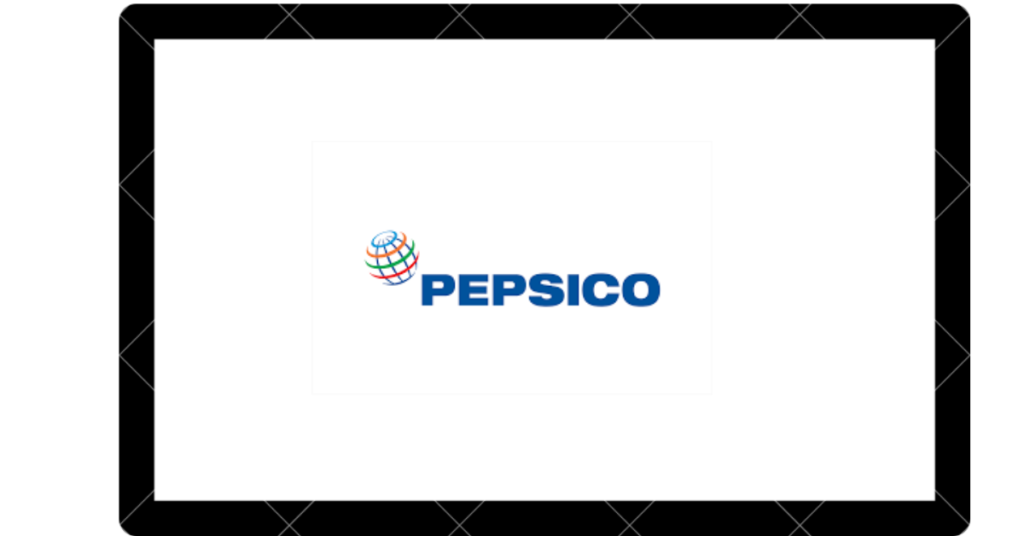
PepsiCo India is a subsidiary of PepsiCo Inc., a global food and beverage company known for its iconic brands. In India, PepsiCo has established a strong presence with a diverse portfolio of food and beverage products catering to various consumer preferences and market segments.
Key Highlights:
- Product Portfolio: PepsiCo India offers a wide range of beverages including carbonated soft drinks (Pepsi, Mountain Dew, 7UP), non-carbonated beverages (Tropicana fruit juices, Gatorade sports drinks), and packaged drinking water (Aquafina). It also includes a variety of snacks and food products under brands like Lay’s, Kurkure, Uncle Chipps, Quaker, and Doritos.
- Market Presence: The company has a significant presence across India with manufacturing facilities strategically located to serve both urban and rural markets. Its products are widely distributed through a robust network ensuring availability in diverse retail outlets and channels.
- Innovation: PepsiCo India emphasizes innovation in product development, introducing new flavors, healthier options, and packaging innovations to meet evolving consumer preferences and market trends.
- Sustainability Initiatives: As part of its global commitment, PepsiCo India focuses on sustainable practices in agriculture, water conservation, and reducing environmental impact across its operations. It promotes initiatives like sustainable farming practices and recycling programs.
- Community Engagement: PepsiCo India actively engages in community development programs focusing on education, health, and livelihoods through initiatives like PepsiCo Foundation and corporate social responsibility (CSR) projects.
- Quality and Safety: The company adheres to stringent quality and safety standards in its manufacturing processes to ensure the highest product quality and consumer safety.
- Digital Transformation: PepsiCo India leverages digital technologies for marketing, sales, and consumer engagement, enhancing its operational efficiency and customer interaction.
- Corporate Values: PepsiCo India upholds values of diversity, inclusivity, and ethical business practices, reflecting its commitment to corporate governance and social responsibility.
PepsiCo India continues to innovate and expand its market presence, leveraging its global expertise while adapting to local tastes and preferences in the dynamic Indian market.
| Aspect | Details |
|---|---|
| Parent Company | PepsiCo Inc. |
| Founded | PepsiCo globally founded in 1965; PepsiCo India operations established later |
| Headquarters | Gurugram, Haryana, India |
| Key Products | Carbonated Soft Drinks: Pepsi, Mountain Dew, 7UP Non-Carbonated Beverages: Tropicana, Gatorade Packaged Drinking Water: Aquafina Snacks: Lay’s, Kurkure, Uncle Chipps Breakfast Cereals: Quaker |
| Market Presence | Nationwide presence with manufacturing facilities across India; extensive distribution network |
| Innovation | Continuous innovation in flavors, healthier options, and packaging to meet consumer preferences and market trends |
| Sustainability Initiatives | Focus on sustainable agriculture, water conservation, and environmental stewardship; initiatives in recycling and community engagement |
| Community Engagement | Active involvement in education, health, and livelihoods through PepsiCo Foundation and CSR programs |
| Quality and Safety | Stringent adherence to global quality and safety standards in manufacturing processes |
| Digital Transformation | Utilization of digital technologies for marketing, sales, and consumer engagement |
| Corporate Values | Emphasis on diversity, inclusivity, and ethical business practices; commitment to corporate governance and social responsibility |
This table provides a concise overview of PepsiCo India, highlighting its parent company, founding details, headquarters, key products, market presence, innovation efforts, sustainability initiatives, community engagement, quality assurance, digital transformation, and corporate values in the Indian market.
also read :Top 10 Virtual Reality Startups in india
8 Mother Dairy :

Mother Dairy is a well-established dairy company in India that operates under the National Dairy Development Board (NDDB). It was established in 1974 and has since become a prominent player in the dairy sector, known for its wide range of dairy products and fruit-based beverages.
Key Highlights:
- Product Range: Mother Dairy offers a diverse array of dairy products including milk, butter, ghee, curd (yogurt), paneer (cottage cheese), dairy whitener, and ice creams. It also produces fruit-based beverages such as juices and drinks under the brand name ‘Safal’.
- Market Presence: The company has a strong presence in major cities and regions across India, supported by numerous distribution channels and retail outlets. It serves both urban and rural consumers with its fresh and processed dairy products.
- Quality Assurance: Mother Dairy maintains stringent quality control measures throughout its production processes to ensure the safety and purity of its dairy products. It adheres to national and international standards for food safety and hygiene.
- Sustainability Initiatives: Mother Dairy is committed to sustainable dairy farming practices and environmental conservation. It supports dairy farmers through various initiatives aimed at enhancing productivity and livelihoods.
- Community Development: The company actively engages in community development programs focusing on education, health, and rural development. It operates under the cooperative model, ensuring fair returns to dairy farmers.
- Technology and Innovation: Mother Dairy emphasizes technological advancements and innovation in dairy processing and packaging to meet consumer demands and enhance operational efficiency.
- Corporate Social Responsibility: Through its initiatives, Mother Dairy promotes ethical business practices, transparency, and social responsibility. It aims to create value for stakeholders while contributing to societal welfare.
- Financial Performance: Mother Dairy has demonstrated strong financial performance over the years, reflecting its market leadership and effective management practices in the dairy industry.
Mother Dairy continues to expand its product portfolio and market reach while maintaining a focus on quality, sustainability, and community welfare in the dairy sector in India.
| Aspect | Details |
|---|---|
| Founded | 1974 |
| Parent Organization | National Dairy Development Board (NDDB) |
| Headquarters | New Delhi, India |
| Key Products | Milk, Butter, Ghee, Curd (Yogurt), Paneer (Cottage Cheese), Dairy Whitener, Ice Cream, Fruit-based Beverages (Safal Juices) |
| Market Presence | Strong presence in major cities and regions across India; extensive distribution network and retail outlets |
| Quality Assurance | Strict adherence to national and international food safety and hygiene standards; rigorous quality control measures in production processes |
| Sustainability Initiatives | Focus on sustainable dairy farming practices, environmental conservation, and support for dairy farmers through productivity enhancement programs |
| Community Development | Engages in education, health, and rural development programs; operates under a cooperative model ensuring fair returns to dairy farmers |
| Technology and Innovation | Emphasis on technological advancements in dairy processing and packaging to enhance product quality and operational efficiency |
| Corporate Social Responsibility | Promotes ethical business practices, transparency, and social responsibility; aims to create societal value and welfare |
| Financial Performance | Demonstrates strong financial performance and market leadership in the dairy industry in India |
This table provides a concise overview of Mother Dairy, highlighting its founding details, parent organization, headquarters, key products, market presence, quality assurance, sustainability initiatives, community development efforts, technological innovation, corporate social responsibility, and financial performance in the dairy sector.
also read :Top 10 Augmented Reality Startups in india
9 Dabur India :
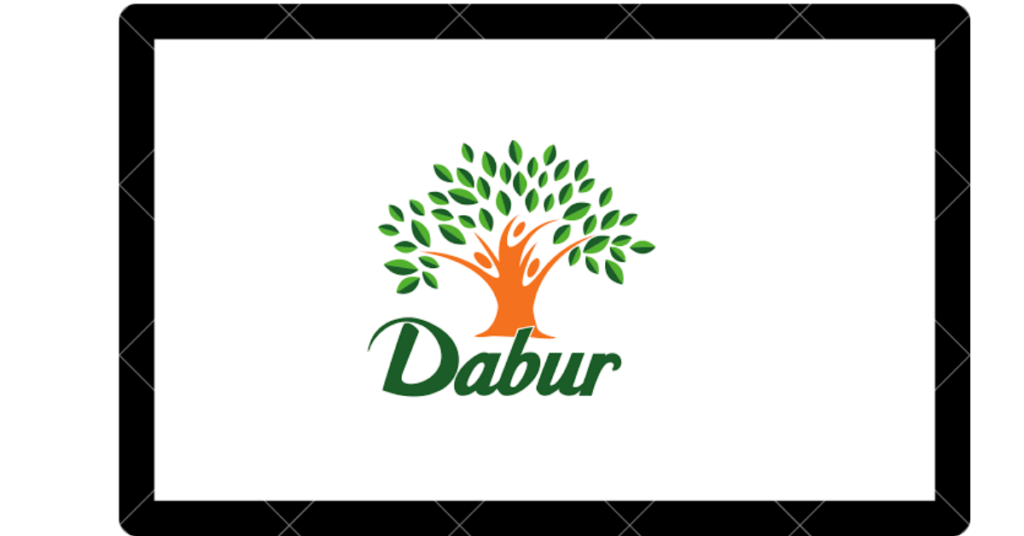
Dabur India Limited is a leading Indian consumer goods company known for its range of natural and Ayurvedic products. Established in 1884, Dabur has grown to become one of the largest fast-moving consumer goods (FMCG) companies in India, with a diversified product portfolio spanning across healthcare, personal care, and food segments.
Key Highlights:
- Product Range: Dabur offers a wide array of products including health supplements (Chyawanprash, Honey), oral care (Dabur Red Toothpaste), hair care (Vatika Shampoo, Hair Oils), skin care (Dabur Gulabari), digestive health (Hingoli), and food products (Real Fruit Juices).
- Ayurvedic Heritage: The company is known for integrating Ayurvedic principles into its products, leveraging traditional Indian medicine for health and wellness solutions.
- Market Presence: Dabur has a strong presence across India and international markets, with its products widely distributed through retail channels, pharmacies, and online platforms.
- Quality Assurance: Dabur maintains stringent quality standards and adheres to Good Manufacturing Practices (GMP) to ensure the safety, efficacy, and purity of its products.
- Innovation: The company emphasizes innovation in product development and packaging, introducing new formulations and variants to meet consumer preferences and market trends.
- Sustainability Initiatives: Dabur is committed to sustainable business practices, including responsible sourcing, environmental conservation, and community development through various CSR initiatives.
- Digital Transformation: Dabur has embraced digital technologies for marketing, sales, and customer engagement, enhancing its brand visibility and consumer interaction.
- Corporate Values: Dabur upholds values of integrity, transparency, and ethical business practices, reflecting its commitment to corporate governance and stakeholder value creation.
- Financial Performance: Dabur has consistently delivered strong financial performance, driven by its robust product portfolio, market leadership in Ayurvedic products, and strategic expansion initiatives.
Dabur India continues to innovate and expand its market presence while maintaining its focus on Ayurvedic heritage, quality, sustainability, and ethical business practices in the FMCG sector.MTR Foods
| Aspect | Details |
|---|---|
| Founded | 1884 |
| Headquarters | Ghaziabad, Uttar Pradesh, India |
| Key Products | Health Supplements: Chyawanprash, Honey Oral Care: Dabur Red Toothpaste Hair Care: Vatika Shampoo, Hair Oils Skin Care: Dabur Gulabari Digestive Health: Hingoli Food Products: Real Fruit Juices |
| Market Presence | Strong presence in India and international markets; extensive distribution network and online presence |
| Ayurvedic Heritage | Integration of Ayurvedic principles into product formulations, promoting health and wellness solutions |
| Quality Assurance | Adherence to stringent quality standards and Good Manufacturing Practices (GMP) for product safety and efficacy |
| Innovation | Focus on innovation in product development and packaging to meet consumer preferences and market demands |
| Sustainability Initiatives | Commitment to sustainable business practices, including responsible sourcing, environmental conservation, and community development |
| Digital Transformation | Utilization of digital technologies for marketing, sales, and customer engagement to enhance brand visibility and consumer interaction |
| Corporate Values | Upholds values of integrity, transparency, and ethical business practices; commitment to corporate governance and stakeholder value creation |
| Financial Performance | Demonstrates strong financial performance and market leadership in the FMCG sector in India |
This table provides a concise overview of Dabur India Limited, highlighting its founding details, headquarters location, key products across various segments, market presence, Ayurvedic heritage, quality assurance practices, innovation efforts, sustainability initiatives, digital transformation strategies, corporate values, and financial performance in the FMCG industry.
also read :Top 10 Health and Wellness Startups in india
10 MTR Foods :
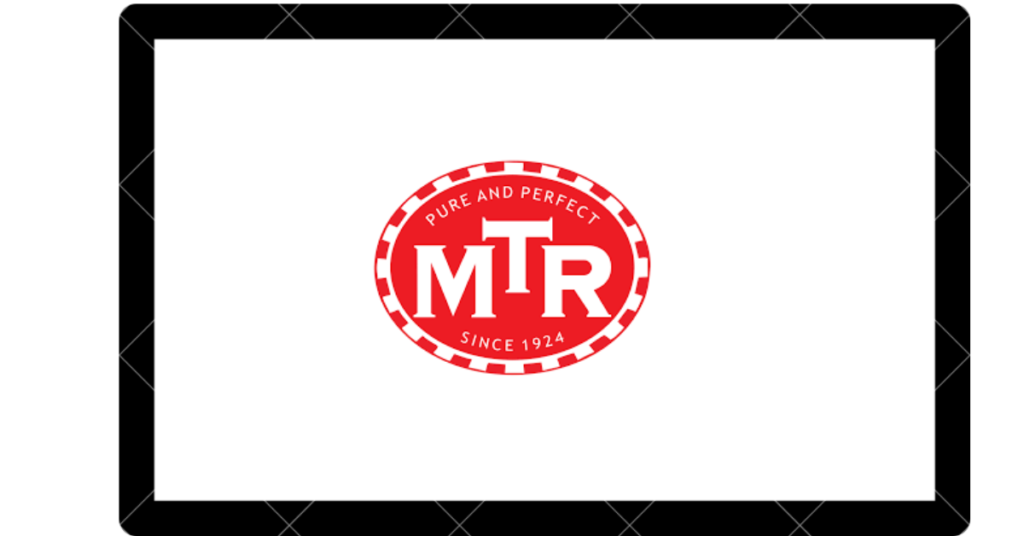
MTR Foods Pvt. Ltd. is a renowned Indian food products company that specializes in ready-to-eat packaged foods, spices, and mixes. Established in 1924, MTR Foods has a rich heritage and is known for its authentic South Indian cuisine offerings. Over the decades, it has expanded its product range to cater to a diverse consumer base in India and abroad.
Key Highlights:
- Product Range: MTR Foods offers a wide variety of products including ready-to-eat meals (like ready-to-eat curries, rice dishes, and snacks), instant mixes (for dosa, idli, upma), spices and masalas, beverages (such as instant coffee mixes), desserts (like gulab jamun mix), and dairy products.
- Heritage and Authenticity: The brand is celebrated for its authentic South Indian flavors and recipes, maintaining high standards of taste and quality across its product portfolio.
- Market Presence: MTR Foods products are widely available across India through supermarkets, grocery stores, and online platforms. It also exports to several countries, catering to the Indian diaspora and enthusiasts of Indian cuisine worldwide.
- Quality Assurance: The company adheres to strict quality control measures and food safety standards in its manufacturing processes to ensure consistency and safety in its products.
- Innovation: MTR Foods emphasizes innovation in product development, introducing new recipes, flavors, and packaging formats to meet changing consumer preferences and market trends.
- Sustainability Initiatives: MTR Foods is committed to sustainable practices in sourcing ingredients, packaging materials, and environmental conservation efforts throughout its operations.
- Community Engagement: The company engages in various community development initiatives, supporting local farmers and promoting sustainable agriculture practices.
- Corporate Values: MTR Foods upholds values of integrity, transparency, and customer-centricity, aiming to deliver quality products that resonate with its consumers’ tastes and preferences.
- Financial Performance: MTR Foods has demonstrated strong financial performance, driven by its brand reputation, extensive product range, and strategic market expansion efforts.
MTR Foods continues to innovate and expand its product offerings while staying true to its heritage of delivering authentic and delicious Indian cuisine experiences to consumers globally.
| Aspect | Details |
|---|---|
| Founded | 1924 |
| Headquarters | Bengaluru, Karnataka, India |
| Key Products | Ready-to-Eat Meals: Curries, Rice Dishes, Snacks Instant Mixes: Dosa, Idli, Upma Spices and Masalas Beverages: Instant Coffee Mixes Desserts: Gulab Jamun Mix Dairy Products |
| Market Presence | Extensive presence across India and international markets; products available in supermarkets, grocery stores, and online platforms |
| Heritage and Authenticity | Celebrated for authentic South Indian flavors and recipes; maintains high standards of taste and quality in product offerings |
| Quality Assurance | Adheres to strict quality control measures and food safety standards to ensure consistency and safety in products |
| Innovation | Focuses on innovation in recipes, flavors, and packaging formats to meet consumer preferences and market demands |
| Sustainability Initiatives | Commitment to sustainable practices in ingredient sourcing, packaging, and environmental conservation efforts |
| Community Engagement | Engages in community development initiatives, supports local farmers, and promotes sustainable agriculture practices |
| Corporate Values | Upholds values of integrity, transparency, and customer-centricity; aims to deliver quality products that meet consumer expectations |
| Financial Performance | Demonstrates strong financial performance driven by brand reputation, diverse product range, and strategic market expansion efforts |
This table provides a concise overview of MTR Foods Pvt. Ltd., highlighting its founding details, headquarters location, key product categories, market presence, heritage, quality assurance practices, innovation efforts, sustainability initiatives, community engagement activities, corporate values, and financial performance in the food products industry.
also read :Top 10 Mental Health Startups in india
Frequently Asked Questions (FAQs) about Top Food Processing Companies in India
1. What are food processing companies?
- Food processing companies transform raw agricultural products into food products that are marketable and have an extended shelf life. They often involve processes such as cleaning, sorting, processing, packaging, and distribution.
2. What are the key factors driving the growth of food processing companies in India?
- The growth of food processing companies in India is driven by factors such as increasing urbanization, changing dietary habits, rising disposable incomes, demand for convenience foods, and technological advancements in food processing techniques.
3. Which are some of the top food processing companies in India?
- Some of the top food processing companies in India include Nestlé India, Britannia Industries, ITC Limited, Hindustan Unilever Limited (HUL), Amul, PepsiCo India, Dabur India, Mother Dairy, MTR Foods, and Parle Agro.
4. What types of products do these companies manufacture?
- These companies manufacture a diverse range of products including dairy products, packaged foods, beverages (both carbonated and non-carbonated), snacks, confectionery, spices, ready-to-eat meals, and health supplements, among others.
5. How do food processing companies contribute to the economy?
- Food processing companies contribute significantly to the economy by creating employment opportunities, enhancing agricultural productivity, reducing post-harvest losses, adding value to raw agricultural produce, and generating revenue through exports.
6. What are some challenges faced by food processing companies in India?
- Challenges faced by food processing companies in India include fluctuations in raw material prices, regulatory compliance, maintaining quality standards, logistics and distribution challenges, competition from unorganized sector, and consumer preferences for healthier options.
7. How important is sustainability for food processing companies?
- Sustainability is increasingly important for food processing companies as they focus on sustainable sourcing of raw materials, reducing carbon footprint, efficient use of resources, waste management, and adopting eco-friendly packaging solutions.
8. How do food processing companies ensure food safety and quality?
- Food processing companies ensure food safety and quality through rigorous quality control measures, adherence to food safety standards and certifications (like FSSAI), hygienic manufacturing practices, regular inspections, and traceability of ingredients.
9. What role do technological advancements play in food processing?
- Technological advancements play a crucial role in food processing by improving production efficiency, extending shelf life of products, enhancing product quality, introducing new products and flavors, and ensuring food safety through automation and advanced processing techniques.
10. How can consumers identify products from reliable food processing companies?
– Consumers can identify products from reliable food processing companies by checking for certifications, reading product labels for ingredients and nutritional information, looking for brand reputation and customer reviews, and choosing products from established and trusted brands in the market.
Last Updated on: Thursday, July 11, 2024 3:09 pm by News Centre24 Team | Published by: News Centre24 Team on July 11, 2024 3:02 pm | News Categories: TRENDING